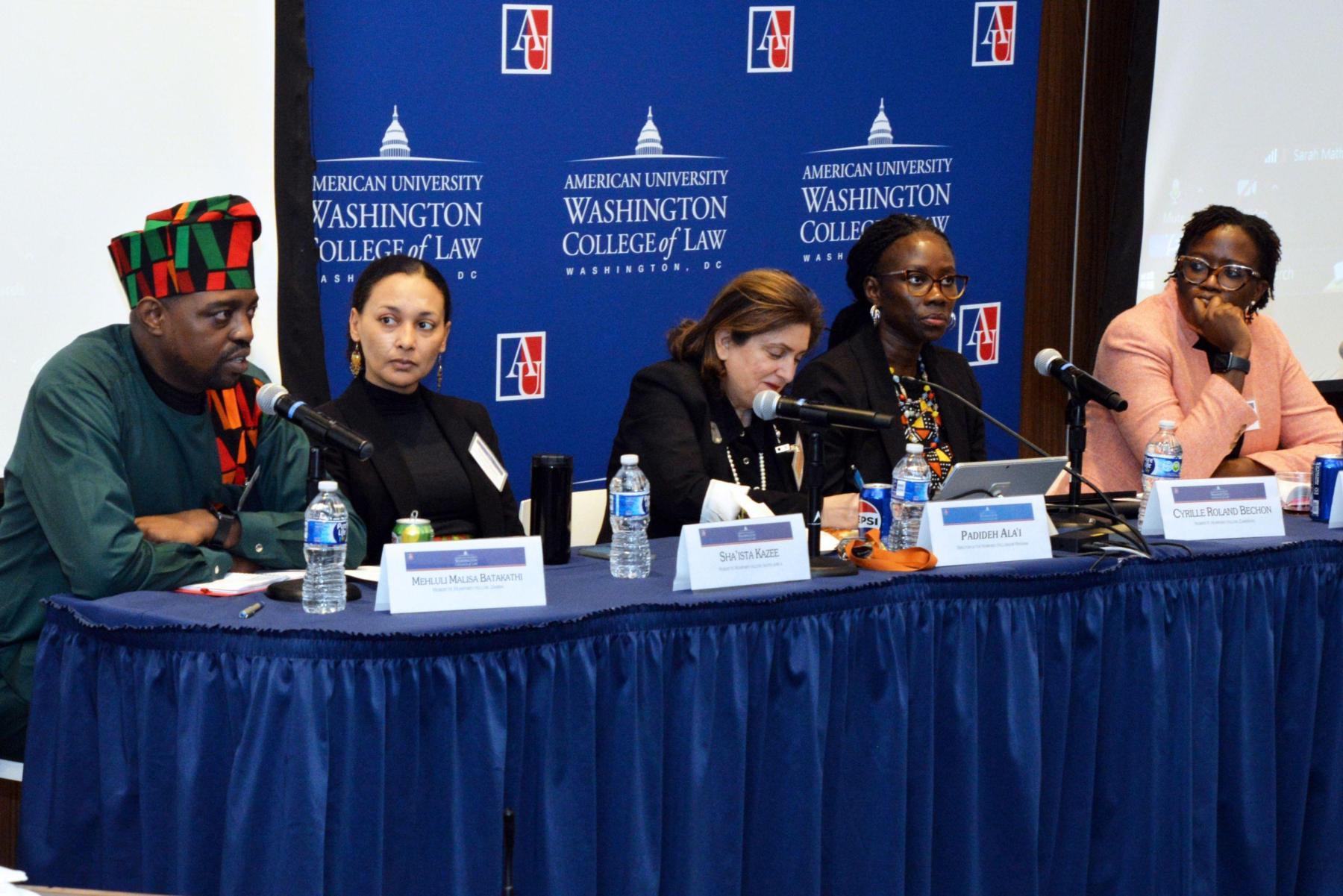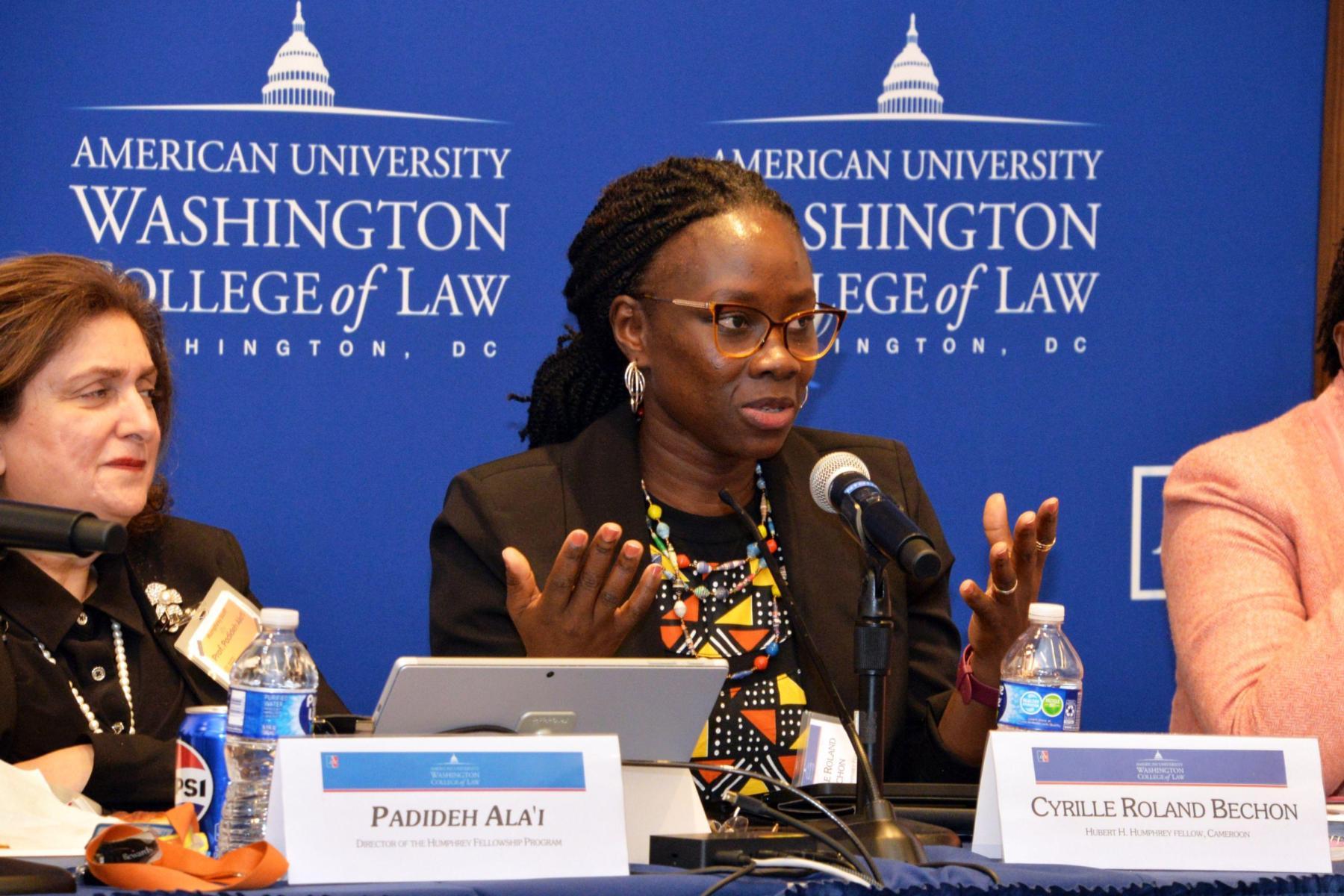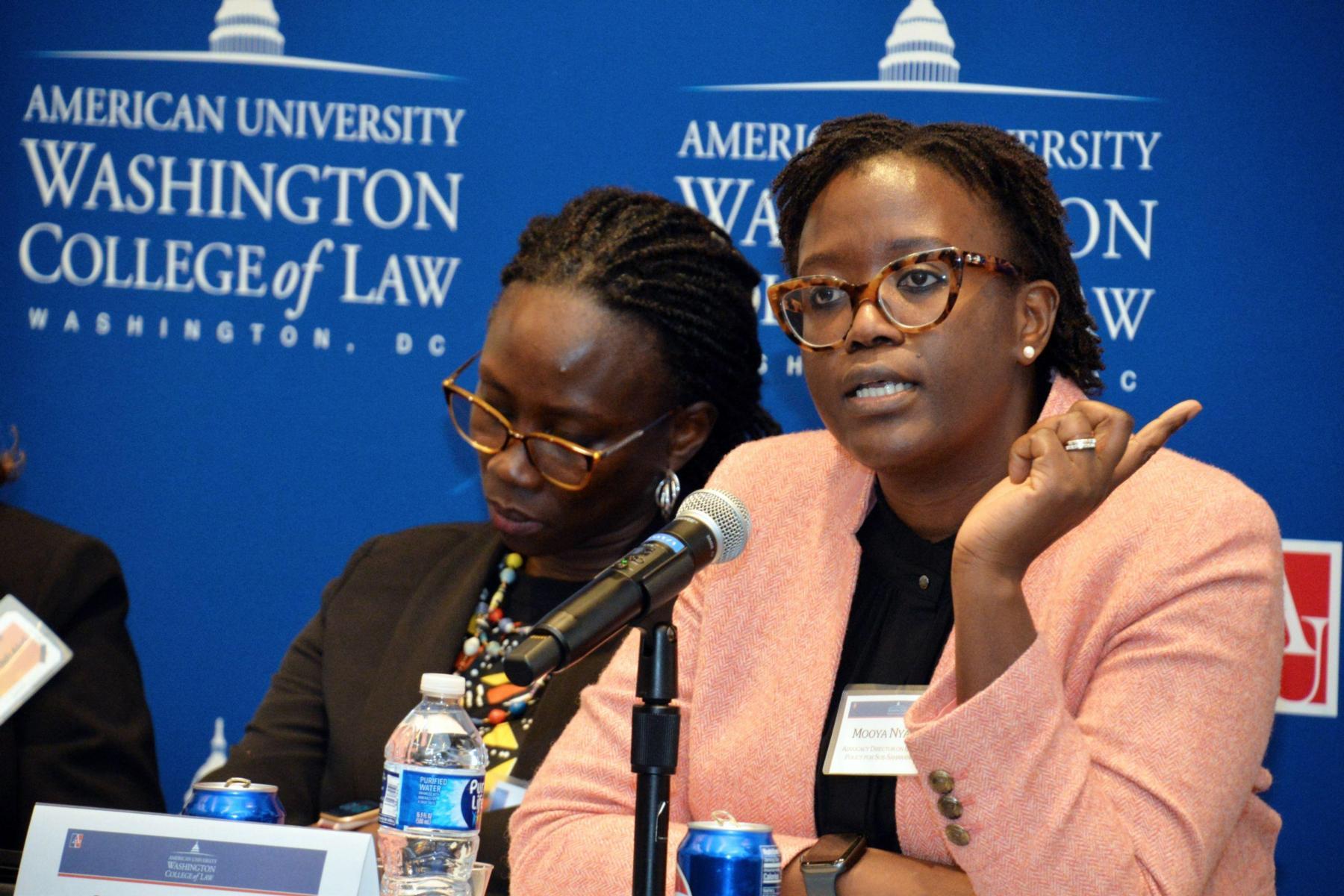Navigating the Hostile Terrain: Human Rights Defenders in Sub-Saharan Africa Amid Authoritarian Trends

In a powerful gathering of human rights defenders, Hubert H. Humphrey Fellows at American University Washington College of Law (AUWCL) 2023-2024, Cyrille Roland Bechon, Sha'ista Kazee, and Mehluli Malisa Batakathi, joined Sarah Mathewson, senior campaigner for Central Africa and Mauritania at Amnesty International, and Mooya Nyaundi, advocacy director on US Foreign Policy for Sub-Saharan Africa at Open Society-US. Together, they engaged in a poignant discussion on the formidable challenges of human rights advocacy, focusing particularly on Sub-Saharan Africa. The panel was moderated by Padideh Ala'i, professor of law and director of the Hubert Humphrey Fellowship program at AUWCL.
The panelists shared stories of legal and physical threats, censorship, and various forms of repression contributing to the shrinking of civil space in the fight for human rights.
Bechon recounted her own experience of intimidation and arrest in Cameroon during moments of civil advocacy and human rights documentation.
"Under the guise of 'suspicion of financing of terrorism,' international human rights advocacy organizations funding local efforts have been shut down and made incriminating," she said.

The panel emphasized the nature of democracy and the importance of human rights defense in protecting global democracies.
"Democracy is not static," South African Fellow Kazee noted. "The robustness of the systems and institutions are regularly tested."
During the discussion, the panel took a moment to remember our alumnus Thulani Rudolf Maseko (LLM '11), an AUWCL Humphrey Fellow in 2010-2011. Maseko was declared a prisoner of conscience by Amnesty International and tragically assassinated last year for his advocacy of human rights in Eswatini (formerly Swaziland).
Speaking to the neo-colonial framework apparent in Zambia that has perpetuated violations of human rights through judicial harassment using the law as a tool, Batakathi underscored the need for complete systems shifts to rethink the realm of possibility within human rights protections.
"This process of repression cannot be separated from Zambia's colonial past," he said. "The laws used to harass are laws related to public order enacted over colonial times. We simply removed the British colonizers and replaced them with our own people who have now become the elite. Since the framework has not changed, repression has stayed similar."
The panel also discussed the impacts of international pressure on progressive change in repressive states. Mathewson stressed that judicial harassment is not confined to any boundary.
"Many critics of government globally are jailed. Ordinary people like teachers and hairdressers who are activists have been arbitrarily detained without actual charge by claiming things like inciting rebellion," Mathewson said. "Our aim is to publish information and create partnerships at an international level to amplify those silenced and create international condemnation or at the very least, observation of these acts."

The panel stressed that despite the difficulty of the work, through advocacy, strategic public interest litigation, public awareness, international cooperation, and solidarity, the fight for human rights persists.
"In our victories lie the caveat that people advocating for freedom of expression, association, and assembly should never have been arbitrarily detained in the first place," Nyaundi said. "The idea around advocacy is increasing the political cost for repressive regimes. That's why we name and we shame. Most of the time that works, but some regimes do not respond to shame, so we must find strategic ways to put pressure collectively. It's important to amplify to Western powers and people that the threat to human rights defense and democracy in the international community is a threat to human rights defense and democracy within their own borders."
AUWCL has hosted Humphrey Fellows in Law and Human Rights since 2002. The Hubert H. Humphrey Program is a program of the Department of State Bureau of Educational and Cultural Affairs (ECA) and is part of the Fulbright programs. In Fall 2023, AUWCL hosted the quarterly meeting of the Fulbright Board. Currently, AUWCL is the only law school hosting Humphrey Fellows and is administered as part of AUWCL’s highly ranked international and comparative legal studies, further enhancing the global impact of the law school.
See more event photos here.
Story by Hasini Jayawardena.
